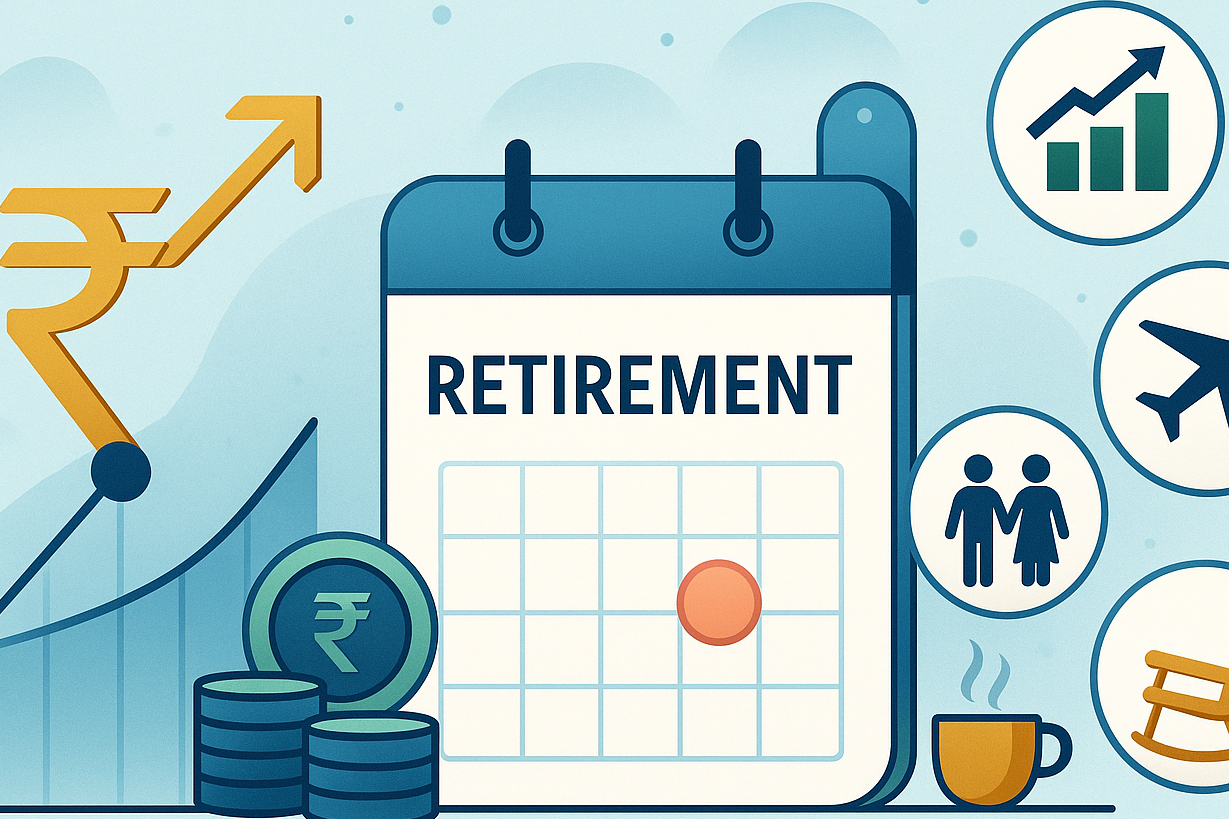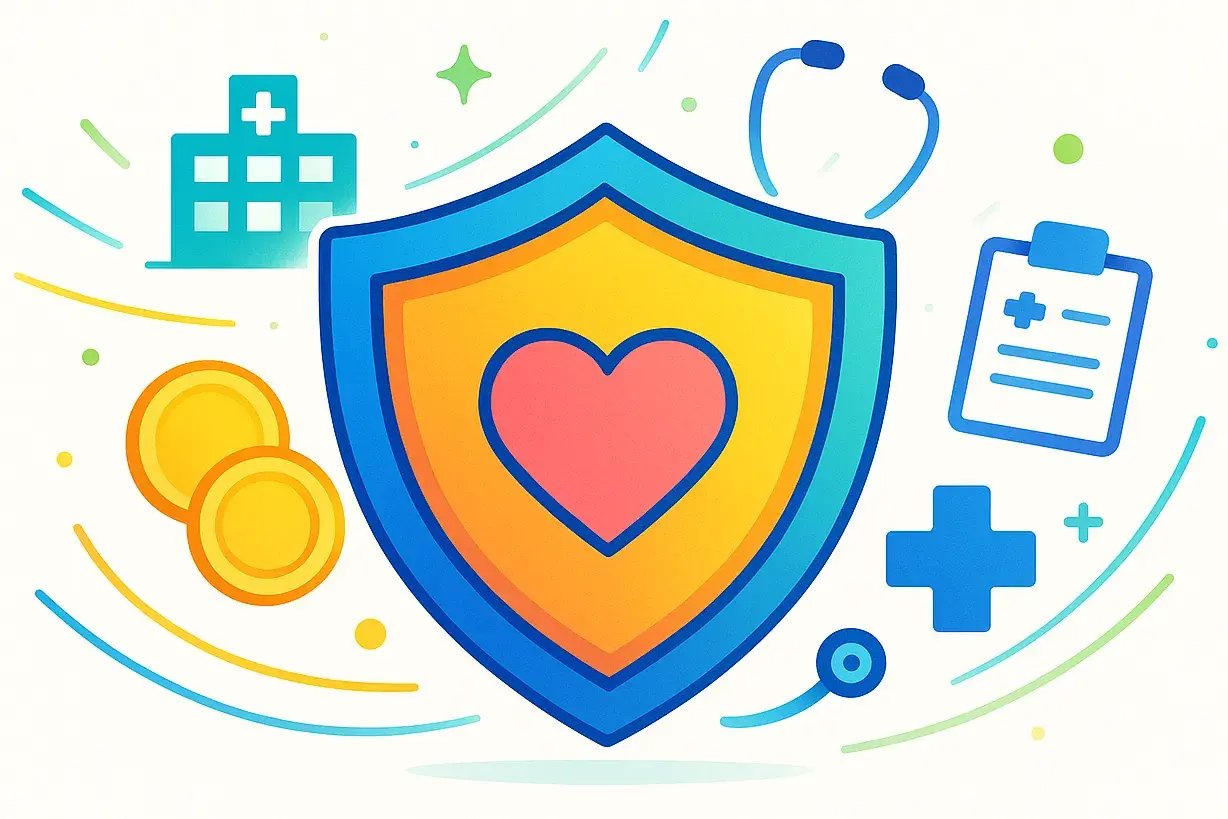
Why Health Insurance Is a Must-Have in Today’s World
In today’s fast-paced, unpredictable world, health is not just a personal priority—it’s a
financial one. The rise in lifestyle-related diseases, surging medical costs, and increased frequency of hospitalizations mean that a single health crisis can derail your long-term savings. Health insurance is no longer a luxury or an optional safety net.
It is a critical financial tool that offers protection, peace of mind, and proactive
healthcare benefits.
Let’s explore why every individual and family must consider health insurance a non-
negotiable part of their financial planning.
The Real Cost of Medical Emergencies
Medical emergencies don’t wait for your bank balance or monthly salary cycle.
Whether it's a sudden accident, a cardiac event, or a viral outbreak like dengue or
COVID-19, treatment costs can be overwhelming.
- A basic hospitalization can cost anywhere between ₹50,000 to ₹2 lakhs.
- Complex surgeries like bypass or organ transplants can run into ₹5–20 lakhs
or more, depending on the hospital and city. - Even short-term ICU admissions can cost ₹20,000–₹50,000 per day.
With inflation hitting the healthcare sector hard, these numbers are only expected to
rise in the coming years.
How Health Insurance Protects Your Savings
Many people assume their emergency fund or fixed deposits will cover medical
needs. However, depleting your savings during a medical crisis can have long-
term repercussions:
- You may have to break investments meant for your child’s education or
retirement. - Emergency loans may lead to interest burdens.
- Financial stress can compound the emotional strain of dealing with illness.
- A health insurance policy acts as a financial shield. It ensures that during a health
emergency, the focus remains on recovery—not on bills. You pay a manageable
premium regularly and get access to high-value medical coverage when it matters
most.
Importance of Preventive Healthcare and Check-Ups
Modern health insurance is no longer just for hospitalization. Many insurers now offer
preventive care features such as:
- Annual health check-ups
- Vaccination reimbursements
- Fitness and wellness rewards
- Teleconsultations and mental health support
- Preventive care plays a key role in detecting illnesses early. For example: A routine blood test might uncover early-stage diabetes.
- A cholesterol screening can prevent future cardiac complications.
Health insurance helps not just in curing disease, but also in preventing it—saving
money and improving quality of life in the long run.
Real-Life Scenarios: With and Without Insurance
Let’s consider two individuals facing the same medical crisis—a gallbladder surgery
that costs ₹1.5 lakhs.
Without Insurance
❌ Immediate financial stress
❌ May delay surgery to arrange funds
❌ Might borrow from family or take personal loans
❌ Post-discharge medications and follow-ups add to the burden
With Insurance
✅ Cashless hospitalization arranged through insurer
✅ Coverage for surgery, tests, medicines, and follow-ups
✅ No need to disturb savings or take loans
✅ Can focus on recovery, not repayment
✅ This contrast underscores the life-changing difference health insurance can make.
5. Long-Term Benefits of Staying Covered
Health insurance rewards consistency and early investment. Here’s how:
✅ No Claim Bonus (NCB): If you don’t make a claim during a policy year, your
sum insured increases—sometimes up to 100% over a few years—without a
proportional increase in premium.
✅ Waiting Period Completion: Pre-existing disease coverage and maternity
benefits often come with waiting periods. Starting early means you complete
these periods sooner.
✅ Lower Premiums When You’re Young: Buying insurance at 25 or 30 costs
significantly less than at 40 or 50.
Tax Benefits: Premiums paid qualify for deductions under Section 80D of the
Income Tax Act—up to ₹25,000 for self and ₹50,000 for senior citizen parents.
Conclusion
Health insurance is more than just a document—it’s a lifeline. It’s the difference
between financial ruin and financial resilience, between anxiety and assurance.
Whether you’re a young professional, a parent, or nearing retirement, investing in a
good health insurance plan is one of the smartest decisions you can make.
Don’t wait for a health scare to realize its value. The best time to get covered was
yesterday.


